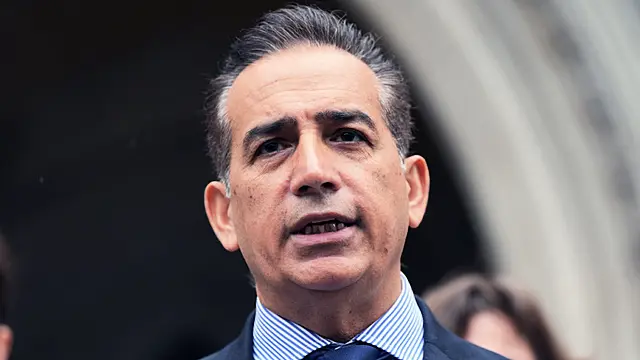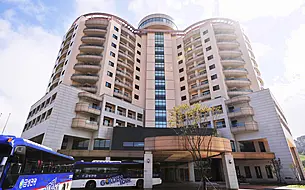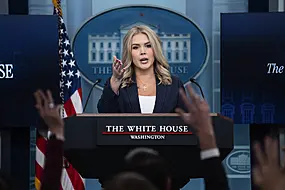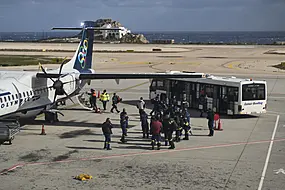Doctors caring for people in the UK with serious mental illness should be held responsible for putting “dangerous” people on our streets, according to the father of Grace O’Malley-Kumar, who was stabbed to death last year.
Dr Sanjoy Kumar, whose daughter was killed by Valdo Calocane last year, condemned the “irresponsible” decision to discharge Calocane from specialist care.
A new report into the care Calocane received from his local mental health trust highlights how he was discharged back to his GP in September 2022.
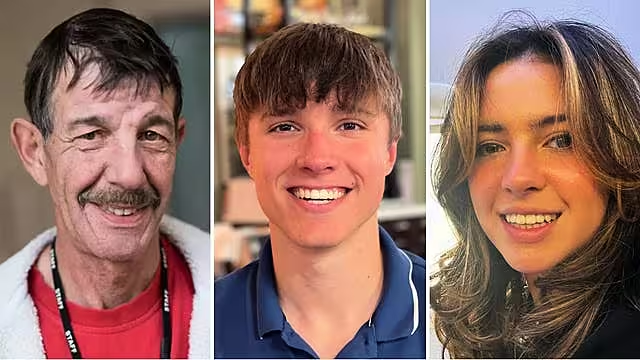
But the Care Quality Commission (CQC) said the evidence “indicated beyond any real doubt” that Calocane would relapse “into distressing symptoms and potentially aggressive behaviour” and the decision to send him back to GP care “did not adequately consider or mitigate the risks of relapse”.
Dr Kumar said the public is “crying out for safety from these crimes” as he revealed that Health Secretary Wes Streeting told families he would “slow down” modifications to the Mental Health Act.
“He has promised that we will be able to work with people who are working with the law,” Dr Kumar told Sky News.
“A change is needed. We need to step back a little bit and really see what is safe for the public.
“We have lost the absolute love of our life, our lovely, beautiful and brave daughter, Gracie, and at the end of the day what we want to see is that the public are safe.
“I think the nation are crying out for safety from these crimes.
“At the end of the day, we want to get the Mental Health Act right – it’s not about depriving people of their liberty.
“It’s about holding clinicians responsible who put people like that out on our streets, any psychiatrist who puts out a dangerous person on our streets has to be held responsible for putting that patient out if he has not done a comprehensive risk assessment… these must be done under the law when the Mental Health Act is fully modified and completed.”
We have published the final part of special review of mental health services at Nottinghamshire Healthcare NHS Foundation Trusthttps://t.co/viDaONbWQo
— Care Quality Commission (@CareQualityComm) August 13, 2024
On Tuesday, it emerged that a public inquiry will be held to examine the events which led to Calocane stabbing three people to death in Nottingham last year.
Calocane killed 19-year-old students Barnaby Webber and Miss O’Malley-Kumar before killing 65-year-old Ian Coates in the early hours of June 13th.
Emma Webber, the mother of Mr Webber, said there was a “catalogue of continual failures” over years.
She welcomed the news of a public inquiry but told Good Morning Britain: “We just now need to make sure it’s the right public inquiry, that it is a statutory public inquiry.”
Dr Kumar told Sky News: “We would like the terms of reference to cover a wide spectrum of all of the failings, because there were so many failings.
“Every victim today in England, who has suffered the way we have, we want justice for them, we want the law changed for them, we fight in their name.
“We really want to change things for the better, so that no other family ever fears for their child getting on a school bus, going to school, going to college, and being away from their family.”
It comes after the final part of a special CQC review into the care of Calocane by Nottinghamshire Healthcare NHS Foundation Trust (NHFT) found risk assessments “minimised or omitted” key details of the serious risk he posed to others.

It also questioned how well the trust engaged with Calocane’s family, who raised concerns about his mental state.
Dr Kumar said the report was “devastating” to read.
“The risk assessments in his case were really poor by treating consultants and he was sectioned four times – there were four opportunities to change his medication, change it to (injectable) medication, which means that the patient complies,” he told Sky News.
“We had a simple case of a culpable person who just did not take his medication. All of this is devastating to read.
“It was so basic, the errors were not technical – they were basic, basic errors and repeated four times over.
“There was so many chances to change the course of Calocane, but none of those opportunities were taken by any of the doctors.
“The doctor who actually discharged him, that was the most irresponsible thing to do.”
Health bosses in England have ordered NHS organisations to review how they care for patients with serious mental illnesses.
This includes a reminder to trusts that they should not discharge patients with serious mental health issues if they do not attend appointments and to ensure they have policies in place for patients where they need intensive treatment but “engagement is a challenge”.
On Monday, a Panorama programme exposed that a psychiatrist warned Calocane could “end up killing someone” three years before the attacks in June 2023.
Dr Sinead O’Malley, Miss O’Malley-Kumar’s mother, told Sky News: “The CQC report clearly also says that there was no doubt that he was that Valdo Calocane was going to relapse, given his non compliance with his medication and lack of engagement. And ultimately, statistics show that if there is even a basic standard of delivery of care homicide does not occur.”
Chris Dzikiti, the CQC’s chief inspector of healthcare, was asked if the Nottingham killings could have been prevented if all the authorities had behaved as they should have done.
He told BBC Radio 4’s Today programme: “For the individuals involved, their families, and loved ones, the damage cannot be undone.
“However there is action that can be and must be taken to better support people with serious mental health needs and provide better protection for the public now and in the future.”
Calocane was handed an indefinite hospital order in January after admitting manslaughter on the grounds of diminished responsibility.
Prosecutors accepted his not guilty pleas to murder after multiple medical experts concluded he had paranoid schizophrenia.
